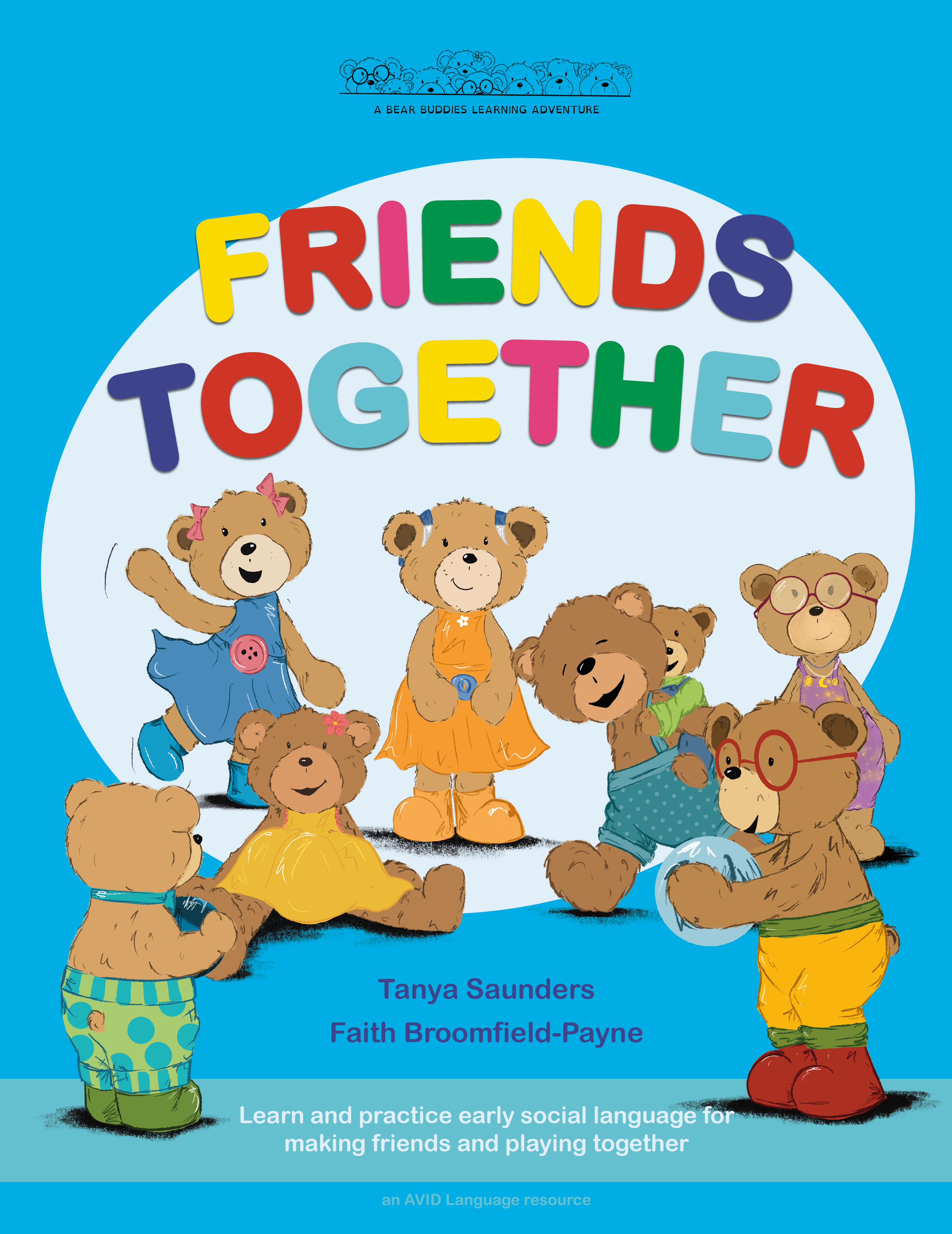FRIENDS TOGETHER
A Bear Buddies Learning Adventure Story: learn and practice early social language for making friends and playing together. By Tanya Saunders Illustrated by Faith Broomfield-Payne
Luna Bear is sad because she is on her own and has no-one to play with. Luckily, The Bear Buddies are kind and friendly; they scoop her up and before long, she is one of them!
Introducing the eight Bear Buddies, FRIENDS TOGETHER is all about making friends in the playground, helping children learn and practice early social language and interpersonal skills. In addition to modelling simple playtime language that children will need to make friends and join in, the story demonstrates the importance of inclusivity, acceptance, kindness and diverse friendships.
With a cochlear-implant wearing central character, FRIENDS TOGETHER was initially written for deaf children learning to listen and speak but is equally suited to other 3-6 year olds who need a little extra language practice as they transition from home to a school environment. This is a critical time in their developmental journey when children need to learn new language and appropriate behaviour for making friends, playing and thriving in a wider social setting.
This book contains 4 bonus Participation Pages, with fun, interactive activities to help children put their learning into practice, and encourage extended two-way communication between adult Reading Buddy and child. (You can also download a free copy of these pages here - especially useful if purchasing the eBook!)
Primary focus of the book (themes/concepts):
Playtime / play language (asking to play, inviting to play, initiating games to play)
Saying hello and introducing yourself and others
Saying ‘thank you’ and responding ‘you’re welcome’
Paying compliments and responding to compliments
Expressing basic feelings
Appreciating the importance of kindness and inclusivity in the playground
Interactive reading and activities stimulating two-way communication between adult and child, which is essential for the development of fluent receptive and expressive language as well as cognitive and social skills.
Secondary focus of the book (themes/concepts):
Learning that different words can have the same or similar meanings (synonyms)
Sequential time concepts: earlier…now / first…then / now…next
Learning left and right
Answering ‘Why?’ questions with ‘Because…’
Recognising and understanding basic emotions in yourself and others
Recognising basic personality traits in yourself and others
Recognising and accepting that different individuals have different preferences/quirks/likes and dislikes
Understanding that the things that make us different are the things that make us interesting
Basic theory of mind - recognising that actions/events have consequences (‘I am sad because…’)
Strengthening auditory memory by asking questions about particular characters in the story at the end
More from The Bear Buddies:
The Bear Buddies Learning Adventure Stories
With a central character, who is deaf and uses cochlear implants, The Bear Buddies learning adventure stories were originally conceived to support deaf children learning to listen and speak but are equally suited to all young children who need a little extra language practice. Focused on the transitional period when their world expands beyond the home to a school environment and other wider social settings, these charming, simple stories about a group of young friends navigating familiar childhood scenarios help children to learn and practice early social language, playground etiquette, self-advocacy and other skills that they will need in order to thrive at school, in the playground and on playdates in each other’s houses. Many of the books allude to specific challenges faced by deaf children but most of all, the books focus on building, repeating and practicing basic language and interpersonal skills needed by all children during this pivotal transition in their lives - the move from their home to their school and wider social interactions. Key themes of all the books include the importance of inclusivity, acceptance, diversity, kindness and friendships.
The author is grateful for the advice and support of the Auditory Verbal UK (AVUK) team.







